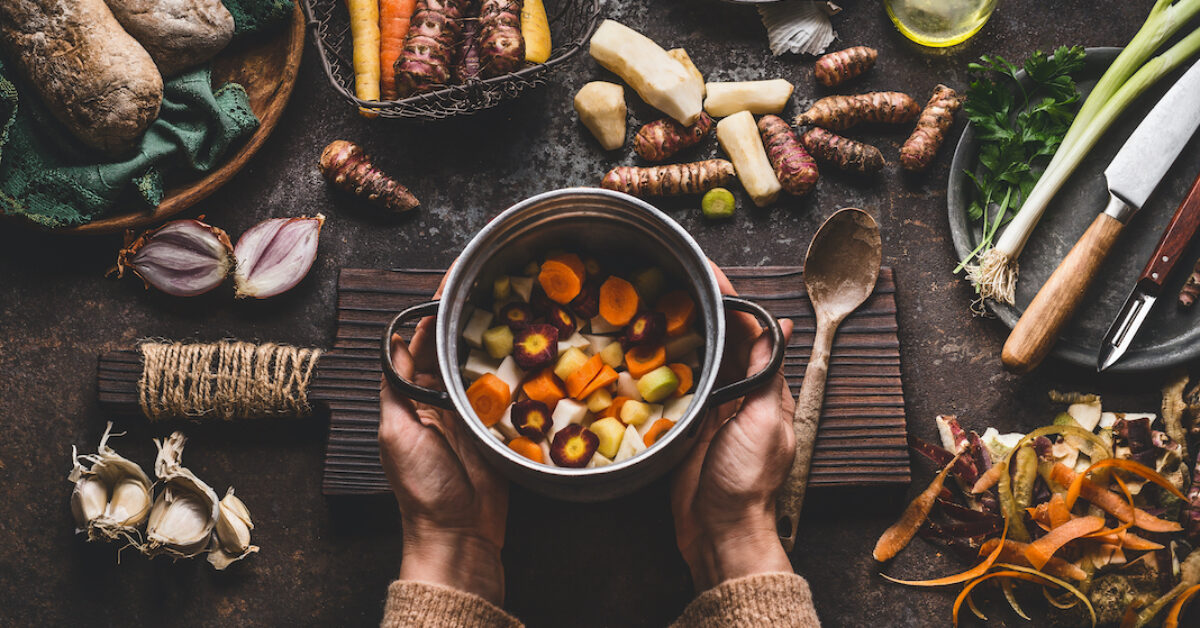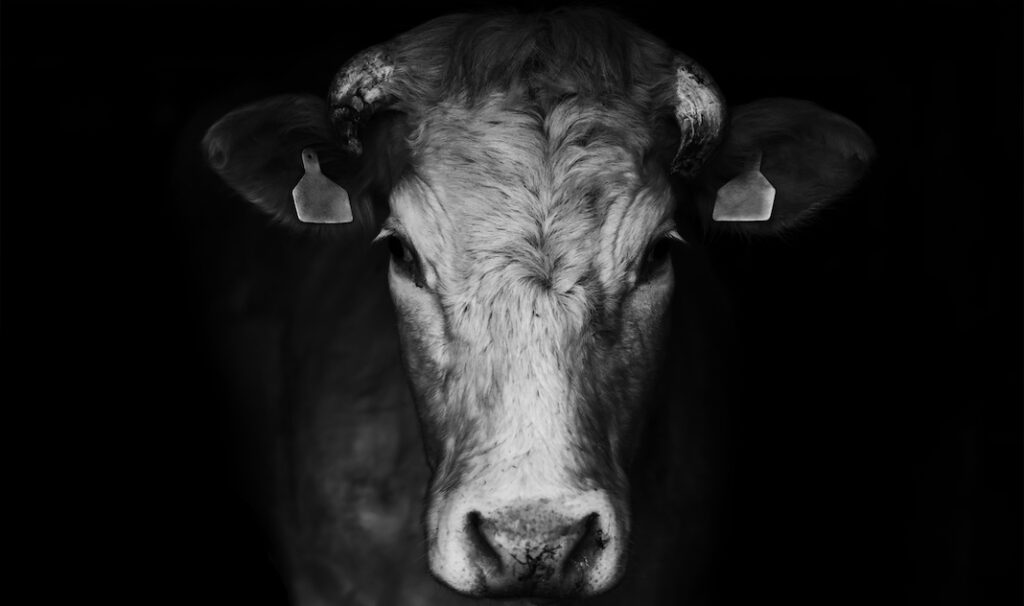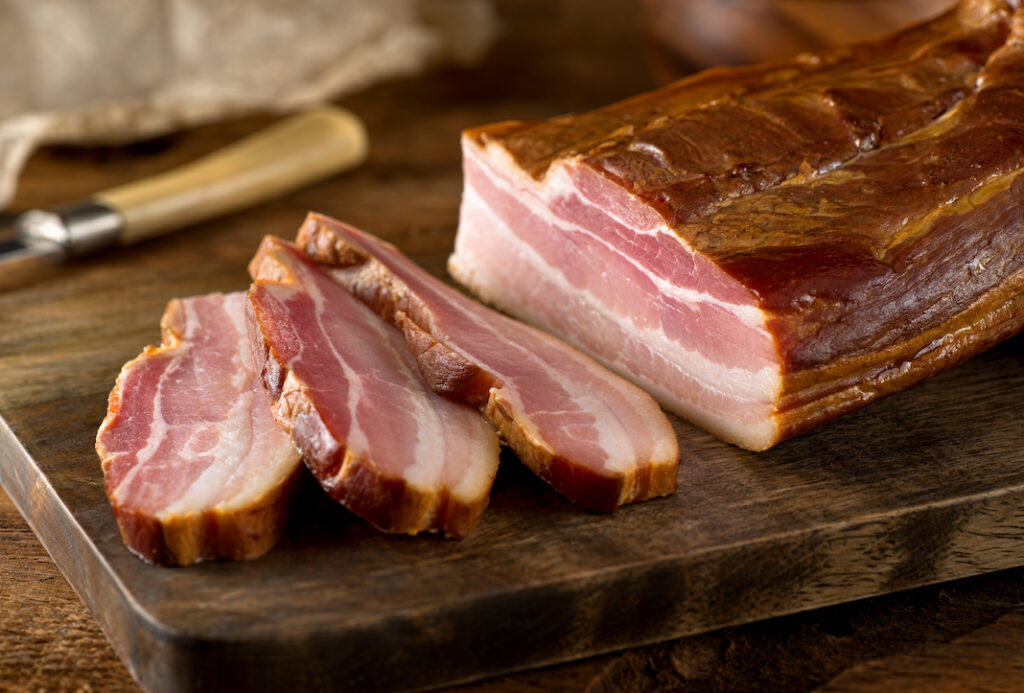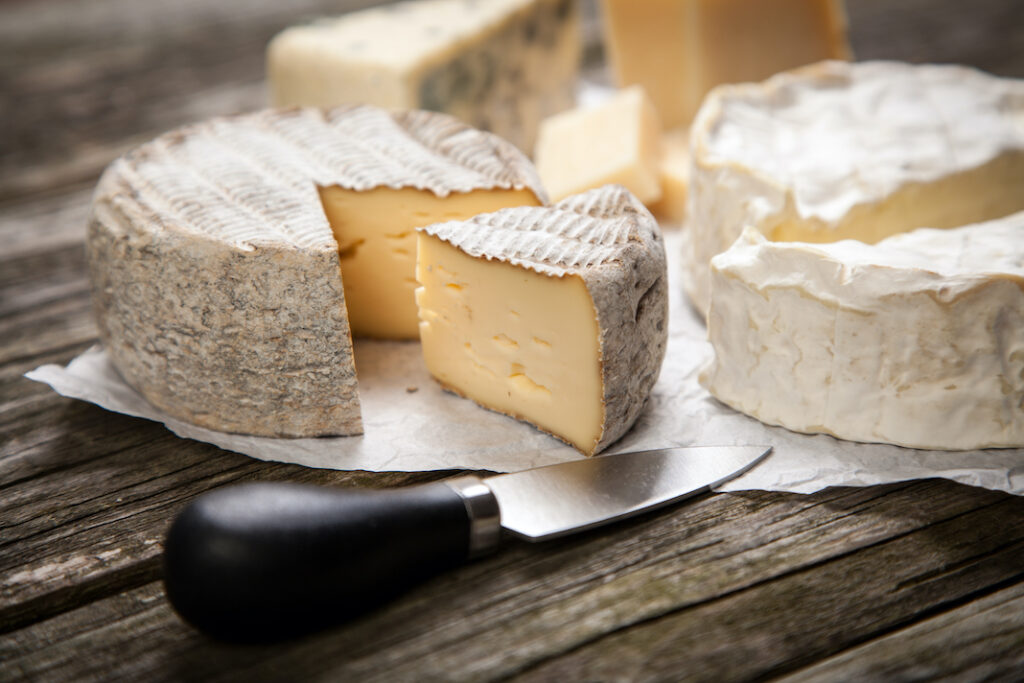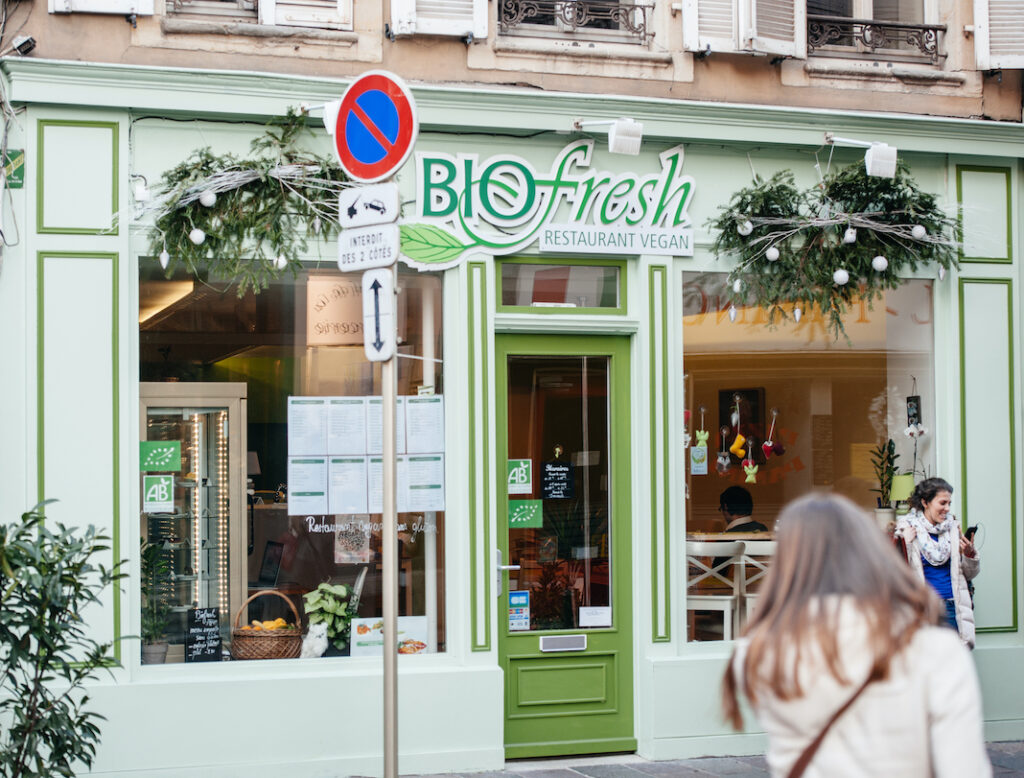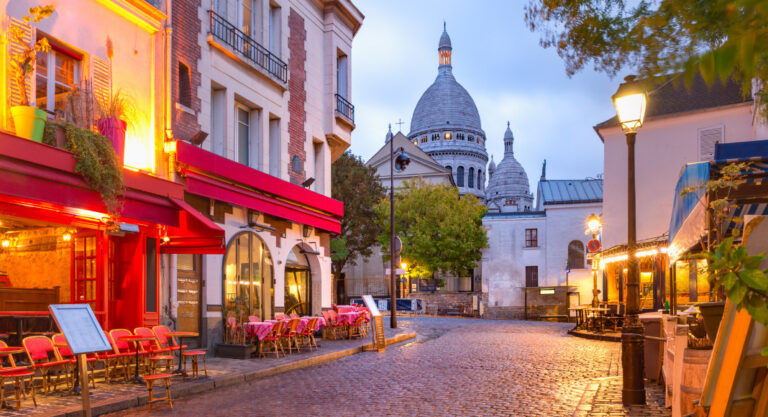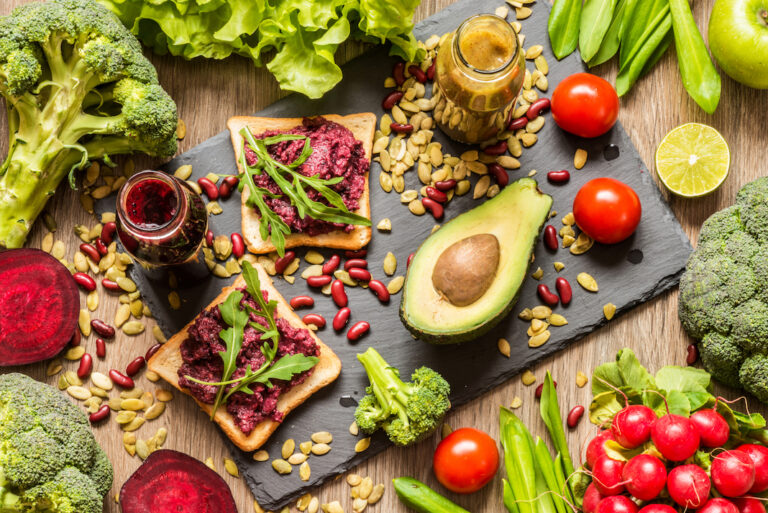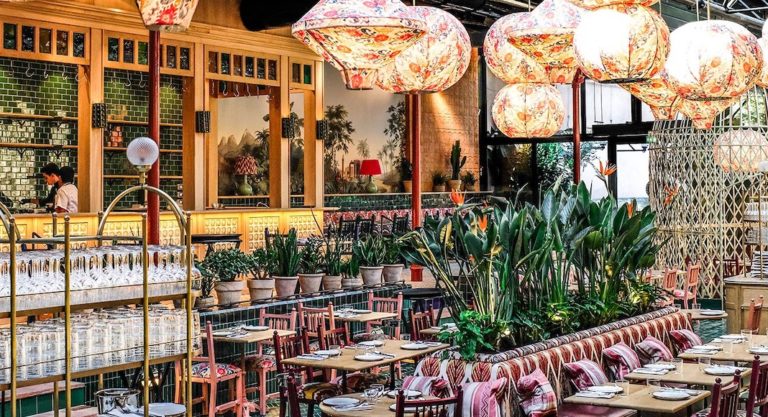If you have ever been to France, you know that French cuisine is everything but vegan. The French do love their meat, fish, cheese, crème, milk and butter. Open a French cookbook to see for yourself! And they are very proud of their world-renowned gastronomic excellence. So…is being vegan in France totally impossible?
First, let us define the word. According to the Cambridge Dictionary, veganism is “the practice of not eating or using any animal products, such as meat, fish, eggs, cheese, or leather: Strict veganism prohibits the use of all animal products, not just food, and is a lifestyle choice rather than a diet.”
There are many reasons why someone would want to embrace this lifestyle:
First, the animals: Animals, like humans, are sentient beings, experiencing fear, stress and suffering. An estimated 69 billion chickens; 1.5 billion pigs; 656 million turkeys; 574 million sheep; 479 million goats; and 302 million cattle were killed for meat production worldwide in 2018.
Second, the planet: The production of meat has important environmental impacts. For example, “twenty livestock companies are responsible for more greenhouse gas emissions than either Germany, Britain or France.” Raising livestock also has massive impacts on land and water use.
Finally, health reasons: A recent study led by Casey Rebholz, an assistant professor at the John Hopkins Bloomberg School of Public Health in Baltimore, involved 48,000 people over 18 years. The study compared the health of meat-eaters, pescatarians, who eat fish and dairy but not meat, and vegetarians, including some vegans.What they found was that people with a vegan and vegetarian diet have a lower risk of heart disease, though a higher risk of stroke, possibly partly due to a lack of B12. The study author said they “found a striking relationship between adherence to dietary patterns and risk of important clinical outcomes”.
So whatever the intention, what is it like, being vegan in France?
In 2020, Deliveroo conducted a survey among the French to find out whether veganism was a mainstream trend or reserved for a niche target. In France, in just one year, the number of vegan restaurants on the meal delivery app has increased by 68% and 12% of French people surveyed stated they would like to go vegan, motivated above all by protecting animal life (62%), the environment (54%) and health (50%).
The study also revealed that the summer period seems to be more conducive to the vegan trend, with the months of July and August seeing a peak in vegan orders in France’s major cities. Paris, Lyon and Strasbourg topped the list of cities ordering the most vegan food.
However, the survey revealed that France is slower to adopt this way of life, far behind the Anglo-Saxon countries, due to a lack of knowledge of the movement: 53% of the French people questioned do not associate veganism with its true definition. Furthermore, 64% see veganism as simply a “trend” and 32% see it as a diet that is too restrictive on a daily basis. 71% of those surveyed said they felt judged when they ordered a vegan dish in restaurants.
And, it should be noted, there is still a strong attachment to meat in France, since 51% of those surveyed mentioned their love for meat and dairy as the main reason for not turning to veganism.
But an earlier survey, conducted in 2017 by the marketing and opinion research institute Harris Interactive, found a little more hope for veganism. According to that study, at that time, 5% of French people were vegetarians or vegan. That’s not a lot, but according to a 2017 Ifop/Lesieur survey for OCPOP, 41% of French people said they had increased their consumption of plant-based products and 50% wanted to see it increase further. The same year, an IFOP/WWF survey reported that 67% of French people said they were ready to reduce their consumption of animal proteins in favor of better quality products.
These figures show that veganism is slowly making its way in France and amongst the French, though it still remains a minority of people, concentrated in big cities. And it still can be difficult. For instance, Lison, 33, says, “I live in Obernai, Alsace, and it is really difficult being vegan in such a small city. To eat meat and animal-based food is really something cultural where I am from, and I find it hard finding plant-based alternatives in my local supermarket. What is even more difficult is the lack of choice in restaurants, I think we are really lagging behind in France!”
But Mathieu who is 45 and has been vegan for 10 years says, “I live in Toulouse but I am a musician so I travel a lot. To me it hasn’t been that hard. I think that by communicating openly we can get people to acknowledge our standpoint. I think that it is more difficult in the countryside than in big cities to find vegan options, but I think it will be more accepted over time, especially with the climate crisis going on. We definitely have to change the way we live and consume if we want a future that is sustainable!”
Camille Bourron lives in Paris and is a political science and social policy graduate, having studied at La Sorbonne and the LSE. She is passionate about politics, culture, art and travel.

